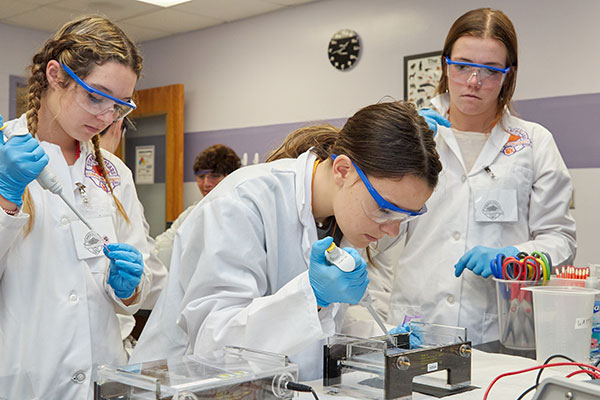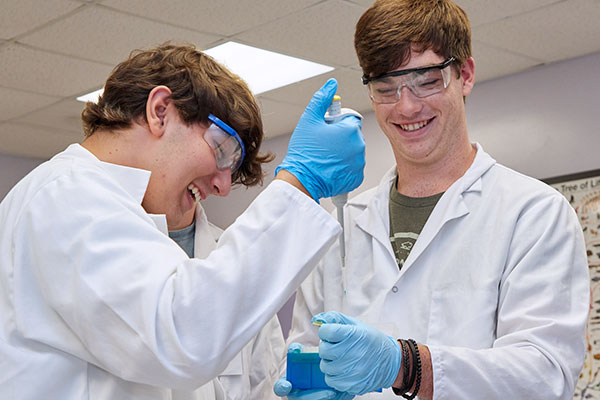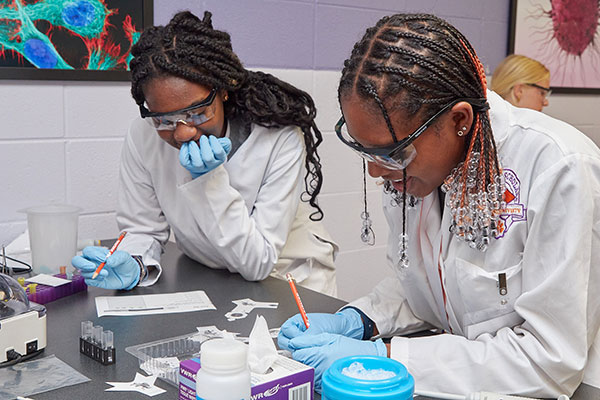Summer Science for High School Students
Experience Clemson
This week-long course explores how bioengineers use engineering and scientific principles to solve problems related to our health and well-being. Become familiar with working principles of the design and usage of biomedical instruments, devices and implants. Surgery class and several labs—bioinstrumentation, atomic force microscopy, cell culture and histology—will help you understand what bioengineers do and the challenges they face. Finally, tour Clemson’s biomedical research labs and talk to students and researchers about their cutting-edge research.
Summer Scholars
Hands-on Activities

High school students interested in science and engineering may enroll in the department’s week-long Summer Science and Academic Enrichment course. Classes are taught by faculty, labs by staff and graduate students. Some of the hands-on lab activities include
- surgery
- biomaterials
- tissue engineering
- biosensors
- cell culture
- bioinstrumentation
- biomechanics
In addition to lab work and classes, students tour
- campus
- Clemson’s Godley-Snell Animal Research Facility
- departmental labs on campus
- departmental labs in the Prisma Health Memorial Hospital
Students also learn about finding and using scientific literature, current topics in bioengineering, and careers. Evening and weekend activities may include movies, tennis, swimming, racquetball, and trips to the John C. Calhoun House, S.C. Botanical Garden, the Hanover House, and the Clemson Forest.

Dr. Alexey Vertegel and his lab have been the course’s primary instructors. According to Dr. Vertegel, “The field of bioengineering is very broad, including people who have studied electrical engineering, chemistry, orthopedics, materials science, and mechanical engineering. Thus, the course is an opportunity for students to have a range of experiences in research techniques. This helps them decide on areas they might or might not like to study.
Annually, more applications are received than can be accommodated. We accept applications in the order in which we receive them and are typically evenly divided among students from South Carolina, North Carolina, and Georgia. For the past two years, the program has accepted international applicants.
Dr. Vertegel said that feedback on the course has been positive. Former students often visit as they near high school graduation. They meet informally with our lab and often bring their parents for a tour. He added, "If they love it, they really love it."
